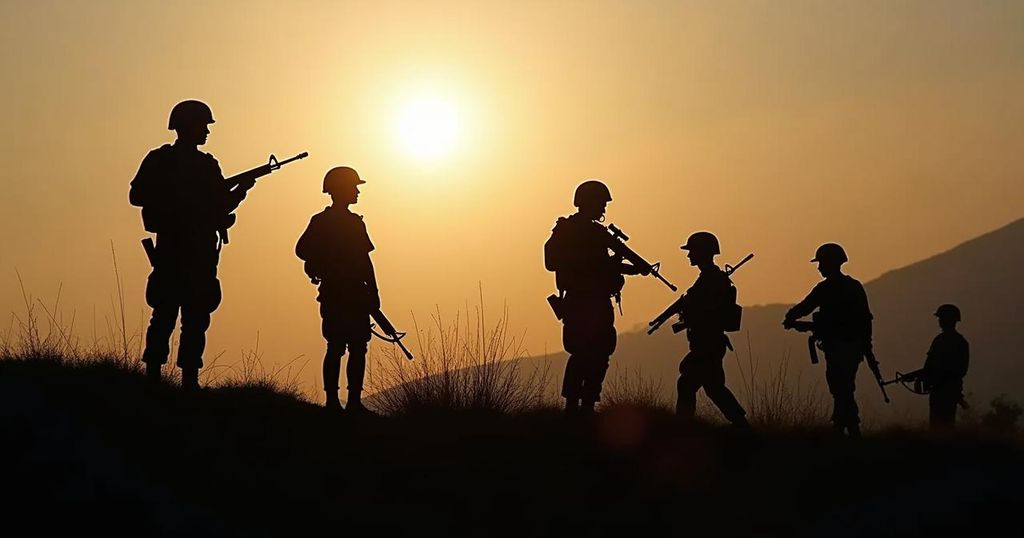Six migrants, including individuals from Egypt, Peru, and El Salvador, were killed when Mexican Army troops opened fire on a truck carrying migrants. The incident, described as “deplorable” by President Claudia Sheinbaum, occurred in Chiapas near the Guatemalan border, raising urgent calls for investigation and accountability. Ten other migrants were also injured, with previous incidents of violence against migrants further complicating the narrative.
Mexican Army troops tragically opened fire on a truck transporting migrants from various nations, resulting in the deaths of six individuals from Egypt, Peru, and El Salvador. The incident, condemned by President Claudia Sheinbaum as “deplorable,” occurred in the vicinity of Huixtla, located in Chiapas near the Guatemalan border. The Defense Department stated that ten other migrants were injured, with subsequent investigations initiated to explore the circumstances surrounding the shooting. Peru’s Foreign Ministry confirmed the death of at least one Peruvian migrant and called for an urgent investigation into the incident, highlighting the strained diplomatic relations between Peru and Mexico following a contentious diplomatic episode in 2022. President Sheinbaum announced that the soldiers responsible for the shooting were transferred to civilian prosecutors for interrogation but noted that they had not yet faced charges. This incident marks a significant escalation in violence against migrants, resonating with previous events wherein more than a dozen migrants were killed by authorities in Tamaulipas in 2021. The military’s explanation suggested that the troops believed they were responding to gunfire as the convoy approached. However, local prosecutors later determined that all deceased migrants had succumbed to gunshot wounds. Notably, Irineo Mujica, an advocate for migrant rights, expressed skepticism regarding the claims that the migrants or their smugglers had fired upon the soldiers, suggesting that the migrants primarily relied on bribery to evade law enforcement. Moreover, the Mexican Council of Bishops characterized the killings as a “disproportionate use of lethal force,” attributing the tragedy to the militarization of immigration policies. This incident may pose a significant challenge to President Sheinbaum, as it casts doubt on the safety and treatment of migrants within the country—a commitment she has publicly supported, continuing the precedent set by her predecessor, Andrés Manuel López Obrador. The historical context of military engagements with migrant vehicles in this region further complicates the narrative, emphasizing a critical need for accountability and reform in Mexico’s approach to migration.
The rampant violence against migrants in Mexico has been the subject of international scrutiny, particularly as the military has increasingly taken on roles traditionally handled by civil law enforcement. The Chiapas region, where the recent incident occurred, has long been a hotspot for migrant smuggling and drug cartel activity, compounding the risks faced by vulnerable populations traversing the area. This incident is a continuation of previous tragedies, including the deaths of 17 migrants by state police in Tamaulipas, which drew widespread condemnation and highlighted the systemic issues pervading Mexico’s immigration enforcement practices. The sociopolitical backdrop includes longstanding tensions between Mexico and various Central and South American countries, exacerbated by diplomatic conflicts, such as the recent disputes involving Peru. The militarization of immigration enforcement has raised critical issues regarding human rights violations and the morality of employing armed forces in such contexts, casting doubt on the protection and treatment of migrants.
This tragic incident underscores the severe consequences of militarizing immigration policies and the need for meaningful reform to safeguard the rights and lives of migrants. President Sheinbaum’s response, including the investigation of the soldiers involved, may provide a framework for accountability, yet it simultaneously raises concerns about the implications for future interactions between armed forces and vulnerable populations. As various stakeholders, including international governments and human rights organizations, call for transparency and reform, it remains imperative for Mexico to reevaluate its approach to migration—promoting humane and safe practices while ensuring respect for individual rights.
Original Source: abcnews.go.com







